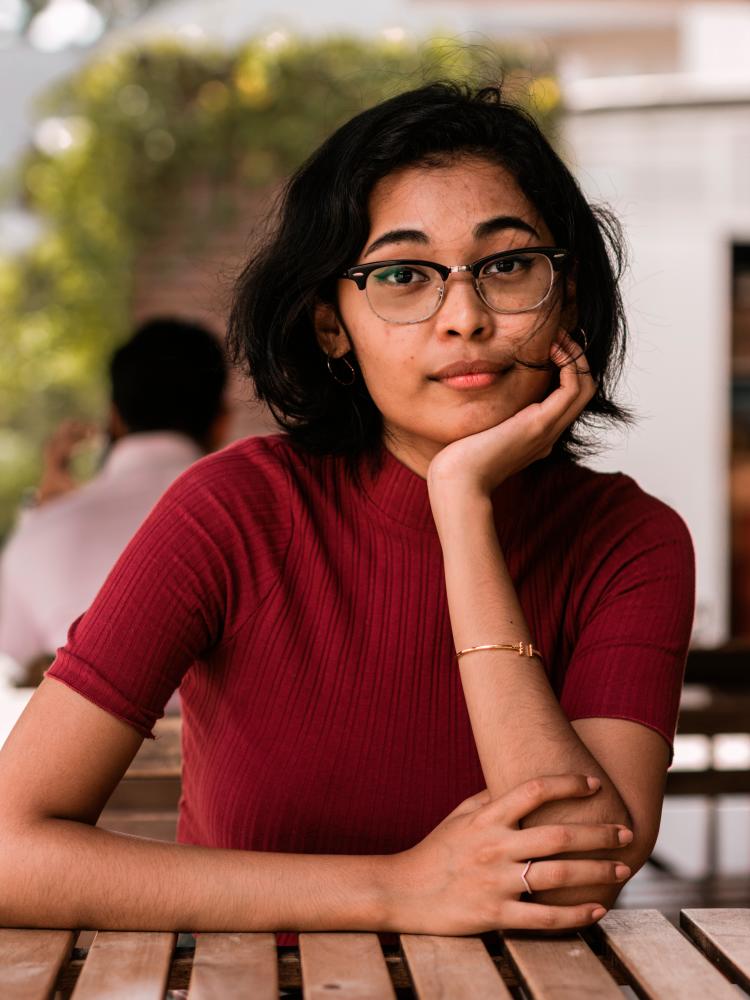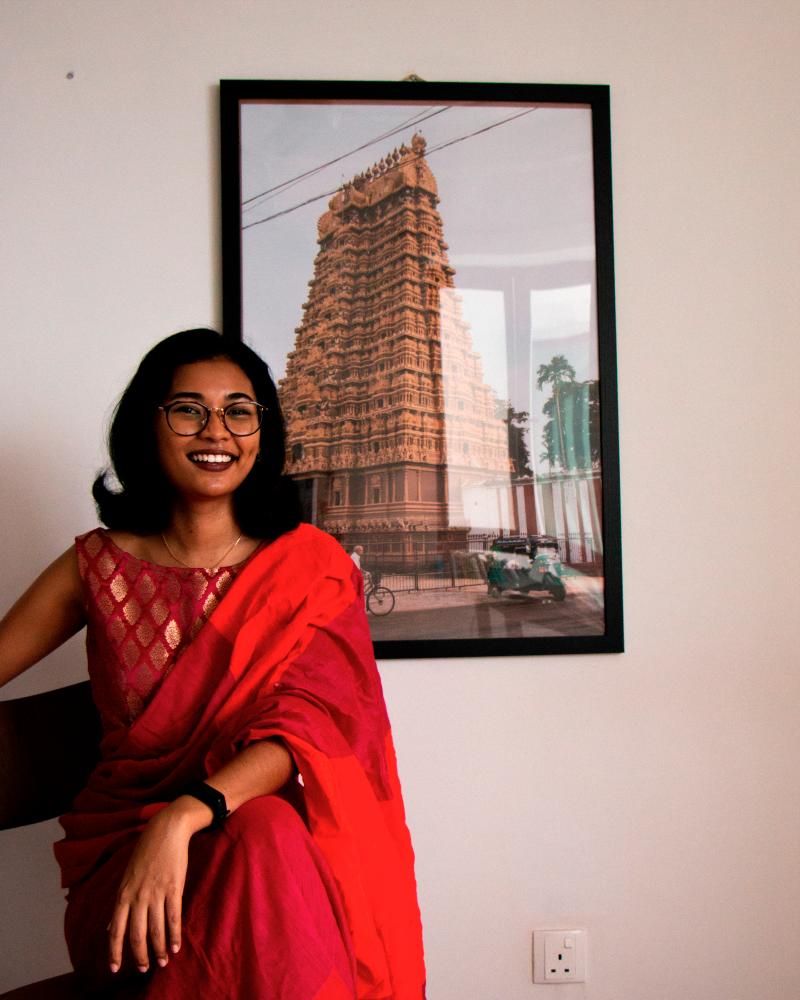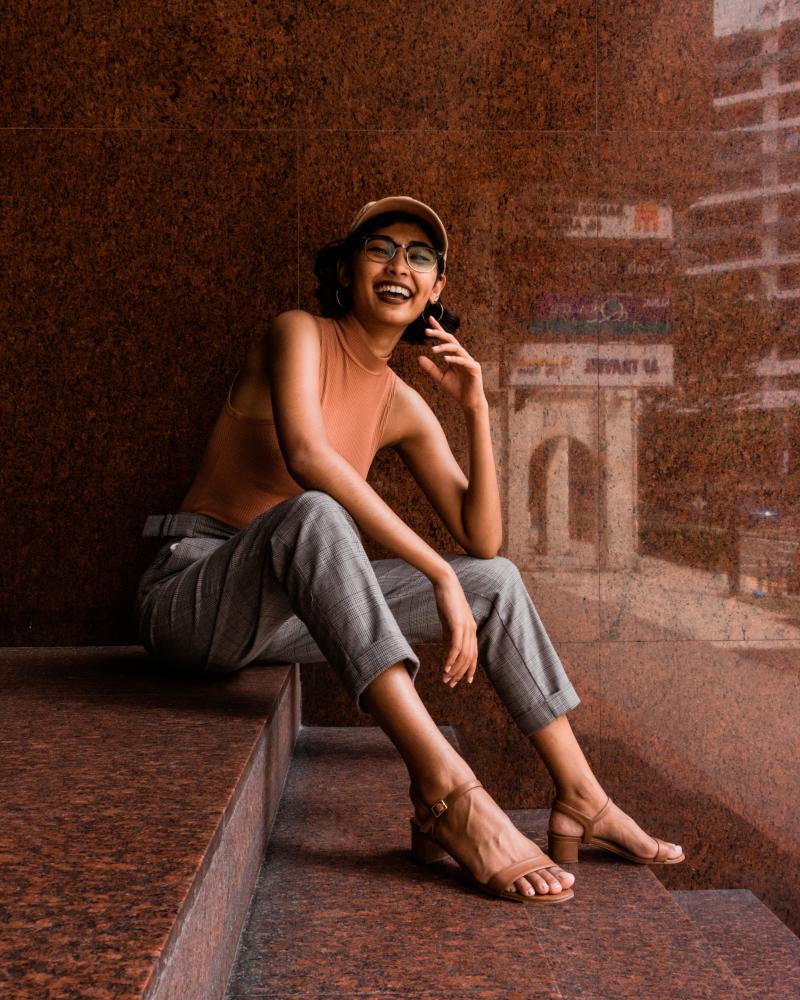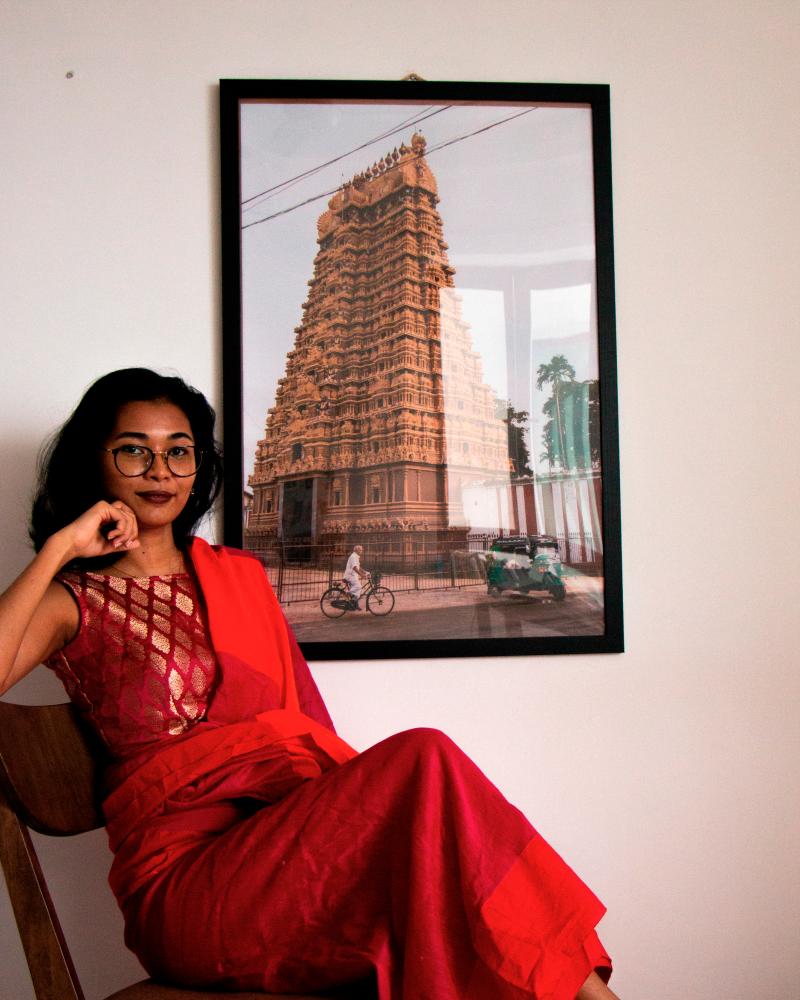MOTIVATED by social injustice and racial inequality, Roshinee Mookaiah uses time-based media and the art of storytelling for the purpose of advocacy.
The 26-year-old – who has a background in psychology, and who has previously worked as a theatre actress – was taken aback by the stereotypical caricatures and inaccurate representation of the Malaysian Indian community in the larger Malaysian media space.
She explains: “I’d sometimes get recommended for TV commercials castings, yet when they see my photo, they always end up suddenly declining me. Even though my skills were sufficient to be shortlisted, my face and race was always something that the client was ‘not looking for’.”
Thus, Roshinee is seeking to change the prejudiced Malaysian Indian narrative through her online platform, Malaysian Indian Anthology (MAINAN) on Instagram. She collects and publishes real-life stories and experiences told by the community in a nuanced and positive way.
Roshinee, who works as the communications and fundraising manager at Yayasan Chow Kit, also runs a passion project Cukup.club – a blog entirely dedicated to overcoming mental health issues.
She shares: “The fight is not over. I’m working towards an alternative future, one that provides accessible education and holistic care to all children in Malaysia, one that elevates minority communities in all facets of life, and one that has accessible resources on mental health for everyone.”

What were some of the specific, common sources of experience amongst the contributors you spoke with?
“I collect all kinds of stories, the good, the bad, the hopeful, the painful and more. Yet more often than not, a lot of my writers share stories about the difficulties that they experienced, such as experiencing racism, colourism and discrimination in their daily lives.
“Men often speak about feeling outcast or out-of-place in their communities, whereas women often speak about how colourism had affected their self-esteem growing up or how they were removed from certain life opportunities.
“On the contrary, I also received stories about loved ones, such as families keeping time-honoured traditions alive and making new ones, or overcoming general life challenges.”
How do you build a warm and positive space within MAINAN?
“When the page grew, it naturally drew a pretty wholesome community, Indians and non-Indians who were interested and invested in learning alternative stories about what it means to be Indian, which is great.
“When our individual stories became viral and our page gained a following quickly, it was definitely hard at times to moderate all comments. Sometimes there are individuals who attempt to deny or reduce someone else’s experience.
“So I decided to issue a comments policy, available on all our pages, stating our stance that our writers and their stories should be treated with respect.
“Anything that is disrespectful, racist or hateful will be taken down and the user blocked. My priority is always to safeguard my writers who had been kind and courageous enough to share their story with us.”
Besides curating stories and publishing them on social media, how do you create dialogue and spark conversation on a larger picture offline?
“Admittedly, my advocacy for media plurality and better representation of the Indian community in media is largely online.
“However, the conversations I also have offline are typically around the lack of representation of Indian people in education and the workforce, especially in professional spaces.
“Of course, these conversations are still limited in my personal and professional capacity, only because I still do not have the network nor resources necessary to fully amplify this advocacy offline.
“I’ve recently set up a team however, as we plan to pivot from publishing stories to running an advocacy campaign pertinent to this community.”

You also run the blog Cukup.club to cultivate and raise awareness for mental health. Do share with us what set you off on this journey.
“It’s largely due to my background as a psychology graduate, in addition to my personal journey overcoming mental health issues when I first joined the workforce after graduation.
“It was such a low point in my life, but thanks to the help of my psychologist and my own personal discipline, I was able to learn and practice useful strategies that I still practice until today to ensure that I’m managing my mental health and energy in a healthy way.
“I wanted to create a space to document my journey and learnings for others who might face something similar.
“Hence, Cukup.club is where I detail my personal reflections from the context of a young, female professional in Malaysia based on three content pillars: mental health, confidence and productivity.”
How has running MAINAN and Cukup.club in tandem impacted you on a personal level?
“These two pages represent causes that are personal and important to me, and I’m glad to be able to work on them. I’m beyond grateful that I have the resources to run these two platforms.
“It’s very validating to empower people when they’re able to resonate with the content produced, and that is a reminder for me to keep going.
“
“I believe it’s my responsibility now to help others in the same predicament. It also really helps me to have my partner, Kula, who also works in the NGO sector just like me.
“Both of us motivate and push each other in our respective advocacies to ‘dare bigger’ in our respective causes. He is my greatest motivator and champion.”










